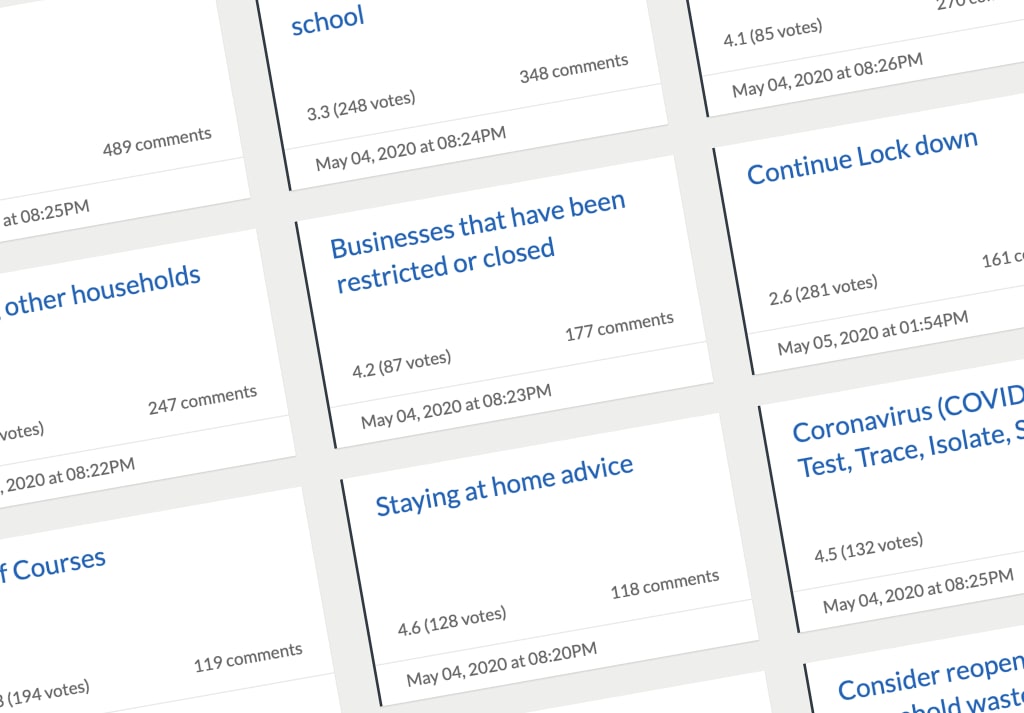
Throughout May, the Scottish Government has been doing a lot of work surrounding COVID-19, including setting out frameworks for easing the lockdown when they decide it is appropriate to do so.
More recently, this involved an ambitious crowdsourcing exercise with the Scottish people using one of our platforms, Dialogue. They were seeking public opinion on how Scotland should proceed during the crisis.
The exercise was extremely popular – over 4000 ideas and over 16000 comments were posted in a week.
But success in this instance can’t simply be measured in numbers. Crowdsourcing is a simple enough concept, but there’s a great deal of nuance between doing it well and doing it poorly. This one was run very well and is an example of best practice. There are a few reasons for this, including, but not limited to:
The challenge (question) was specific and relevant
People are unlikely to respond to topics they don’t feel relate to them/they don’t know much about. Rather than asking something like ‘what are your thoughts on COVID-19?’, the Scottish Government asked people about how lockdown affected them, and what their priorities would be if the lockdown was eased – for example, the reopening of businesses, when kids should be allowed back to school, and visiting relatives. This way the challenge remained relevant to pretty much everyone in Scotland.
Lots of promotion
The clue’s in the name: for crowdsourcing, you need a crowd. This issue affects the whole of Scotland (as well as beyond Scotland’s borders) so for this exercise to be effective they needed a good number of participants. The Dialogue was promoted widely and got picked up by several news outlets, like this BBC article.
Remaining transparent and notifying participants of outcomes
As well as the Herculean amount of work involved in pre-moderating 4000+ ideas and over 16000 comments, the Scottish Government team also put a lot of effort in to providing frequent updates on their progress. The analysts blogged about their preliminary findings before the challenge had closed, followed by a further update a few days later. They updated the main Dialogue challenge page with a link to the blog so that anyone visiting the page could see what had happened so far.
Popular ideas and topics included: quality of life; what could help people to comply with lockdown; visiting other households; and allowing pupils to return to school. Read the analysts’ preliminary findings and their follow up post.
The ideas and comments are in general thoughtful, emotive and well considered. Pre-moderation meant that the team could ensure the conversations didn’t go off-course, but the quality of the discussion is driven by those taking part. This Dialogue is a testament to the consideration people took when getting involved, and the Scottish Government’s commitment to working openly through the pandemic.
To find out more about Dialogue, book a free demo and we’ll talk you through it.